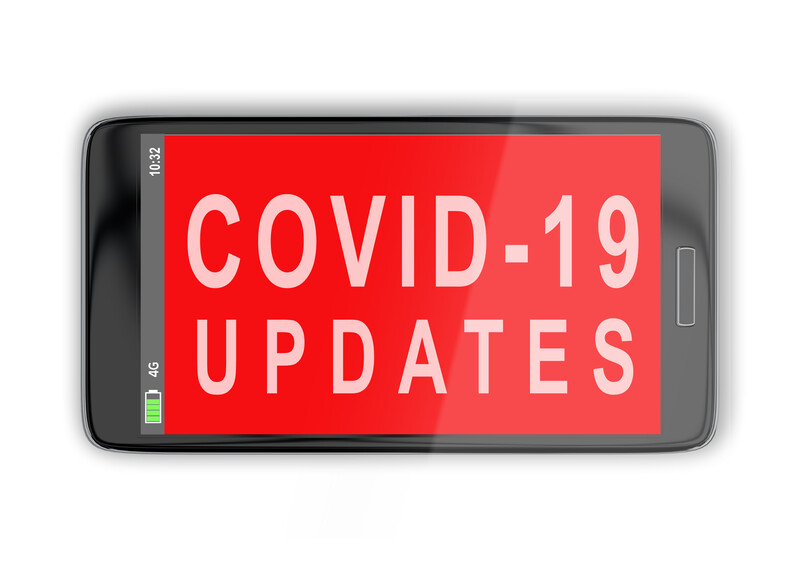
How Regulators are addressing COVID-19 related Medical Device approvals
This blog gives a snapshot of what the FDA, Health Canada and the European Commission have put in place to fast-track COVID-19 related Medical Device approvals and provide quicker access to medical devices that deal with the COVID-19 outbreak.
Currently, there is no vaccine or therapeutic product for COVID-19 that is authorized to treat or prevent the disease. Governmental Regulators are reacting to the global pandemic by enabling an expedited review of medical devices indicated to diagnose, treat, mitigate or prevent COVID-19.
Based on the information provided, the Regulator assesses the risks and benefits of the device to ensure people have access to products that are safe, effective, and of quality.
The U.S. Food and Drug Administration (FDA)
The FDA has issued Emergency Use Authorizations (EUA) for medical devices including IVD test kits to diagnose COVID-19 as well as personal protective equipment (PPE) (including conservation of gloves, gowns and masks) needed to protect healthcare providers interacting with patients. Under EUA declarations, the FDA has the authority to authorize rapid emergency use of specific devices via expedited premarket review during public health crises such as the coronavirus pandemic.
The EUA submission should include as much safety, effectiveness and risk-related data as is available pertaining to the devices in question. Although obtaining an EUA designation provides expedited access to the US healthcare market, these authorizations last only as long as the public health emergency for which they are granted by FDA.
The FDA is collaborating with manufacturers of ventilators, ventilator accessories, and other respiratory devices to better understand the current supply chain issues related to the COVID-19 outbreak and to help mitigate any widespread shortages of these devices.
The FDA has issued a final guidance on ventilator devices that facilitates EUA designations for these products to treat COVID-19 patients. Non-medical manufacturers (such as automotive and industrial manufacturers) need to be aware of the quality, safety and performance standards the FDA requires for the production and modification of ventilator hardware, software and materials.
The FDA has also released a recent FAQ regarding 3D-printed PPE devices and components, cautioning healthcare providers that they may not provide the same level of protection as conventional products. Manufacturers should review the FDA’s final guidance on technical considerations for 3D-printing for a range of recommendations on medical device applications, including device design, software workflow, material controls, post processing and process validation.
Health Canada
Health Canada is expediting the review of medical devices used to diagnose, treat or prevent COVID-19 via a recently approved Interim Order (IO). Under this IO, Health Canada could also look to approvals granted by foreign regulatory authorities in deciding whether to approve an application for the importation or sale of COVID-19 related medical devices. The approved, intended use for non COVID-19 related existing devices, could also be expanded under this IO.
Under the IO, manufacturers are required to submit an abbreviated application to support the safety, effectiveness and quality of their medical device. The fees associated with an application through the IO pathway are waived. Manufacturers applying through this pathway will not be required to hold a Medical Device Single Audit Programme (MDSAP) certification.
Health Canada released a guidance document to assist manufacturers to organize and submit an application in a timely manner for the sale of medical devices that have an active role in either the diagnosis, treatment, mitigation or prevention of COVID-19. Manufacturers will still be required to follow strict post-market safety requirements such as mandatory problem reporting, recall procedures and complaint handling.
Additionally, Health Canada is fast-tracking the Medical Device Establishment Licence (MDEL) application process for companies that want to manufacture, import or distribute Class I masks. Their goal is to complete the process within 24 hours from the time that they receive a completed application.
Healthcare professionals can request access to COVID-19 related medical devices not yet licensed in Canada, or authorized for sale under the IO pathway, through Health Canada’s Special Access Program (SAP). Applications are considered on a case-by-case basis.
European Commission
The European Commission issued a statement that they are working on a proposal to delay the date of application of the Medical Devices Regulation (MDR) by one year. The MDR was to apply starting on May 26, 2020. This proposal will go to the European Parliament at the beginning of April, and it may be in place by the end of that month. If approved, the delay will come as a relief to medical device manufacturers – who may now still have time to submit their device under the current Medical Devices Directive (MDD).
Among some of the biggest changes seen under EU MDR are:
- Increased requirements for clinical evaluation
- Digital and physical labeling
- Postmarket surveillance (PMS), and
- Total life cycle traceability.
There is no word yet on the In-vitro Diagnostic Medical Devices Regulation (IVDR), or the impact of this potential delay on European Notified Body audit activities.
The European Commission recently adopted revised harmonized standards to expedite the production of medical facemasks, gloves, containers for intravenous injections, sterilization devices and disinfectants, and alter particular requirements for emergency and transport ventilators. In collaboration with the European Committee for Standardization (CEN) and the European Committee for Electrotechnical Standardization (CENELEC), the European Commission has agreed to make a number of these harmonized standards freely available.
Summary
During this global pandemic, the medical device regulatory environment is quickly adapting to meet the challenge of supplying sufficient PPE to front-line healthcare providers and life-saving equipment to those people in medical need. Medical device manufacturers must also rise up to meet this challenge and embrace these opportunities to bring their device faster to the market and help us to come out safely on the other side of the COVID-19 curve.
Alexandra (Sandy) Reid is a StarFish Medical QA/RA specialist. She brings years of experience working in the industry, including with StarFish where she supported our Business Development team.
Image: 79519165 – CanStockPhoto.com